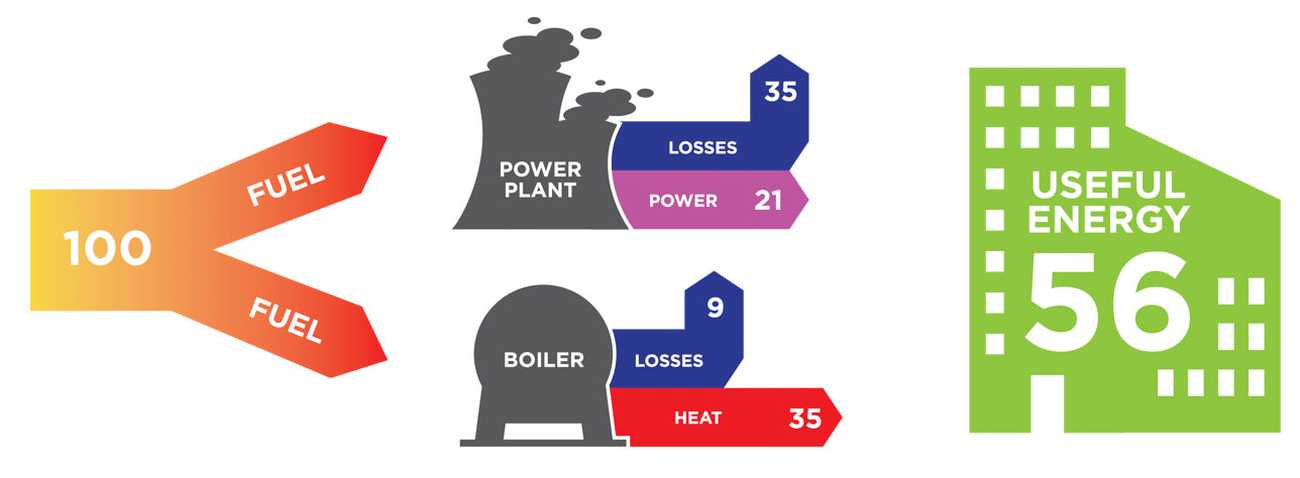A CHP system can deliver a number of financial, environmental and operational benefits
CHP Systems - 65 kW to 10 MW
Learn more about our CHP solutions
Commercial and industrial businesses can benefit significantly
About Us
Learn more about PWE
Ideal for new or existing businesses
CCHP Systems
Learn more about Combined Cooling, Heat and Power
What is Combined Heat and Power?
Combined Heat and Power (CHP) - or ‘cogeneration’ - is the highly efficient process of combusting gas to generate both electricity and thermal energy simultaneously.
The by-product heat produced by the electricity generation process is captured by a heat recovery module and can be reused to produce useful heat in the form of hot air, hot water or steam.
What fuels power a CHP / cogeneration system?
Natural gas is the most common fuel used to power a CHP system, but alternatives such as bioliquids, biofuels and biogases can also be used.
Why is CHP a more energy efficient choice?
When electricity is produced in conventional power stations, some energy must be discarded in the form of waste heat, which is released into the atmosphere through cooling towers or by other means. As a result, a conventional energy model is often only 56% efficient.

By producing electricity where it is consumed, rather than in a remote power station, there are no transmission losses. On-site power generation can therefore be up to 80% efficient.

What are the benefits of CHP?
A Combined Heat and Power system can deliver a number of financial, environmental and operational benefits.
The financial benefits are particularly attractive to businesses. As mentioned above, CHP uses fuel in a more efficient manner and, as such, savings of up to 25% can be achieved.
Environmentally, CHP systems are beneficial as they use less fuel. Depending on which type of CHP system is chosen, emissions are also lower than traditional electricity and heat generation systems.
Finally, from an operational perspective, an organisation can reduce their dependency on grid supply whilst at the same time reduce the burden placed on the original boiler plant used for heat generation. Indeed, the CHP system can act as a base load generator and heat supply, which is particularly beneficial to organisations that depend on consistency of supply.
Who can benefit from CHP?
A wide variety of commercial and industrial businesses can benefit significantly from the installation of a CHP system, including commercial, manufacturing and industrial sites, leisure centres, hotels, hospitals and education establishments, to name but a few.
When is the best time to consider CHP?
It’s worth considering a CHP system whenever an organisational need is identified for a more efficient, reliable and/or clean system. These needs are often identified when a new building or plant is being planned, but equally CHP can be considered when a refurbishment or retrofit is being considered.
How do our Capstone microturbines provide a unique CHP system?
Capstone micro gas turbines offer unique cost, environmental and operational benefits, are scalable from 65 kW to 5 MW, and can function on a variety of gaseous or liquid fuels. You can find out more about these market-leading CHP systems here.
Here to help
If you'd like more information on our unique CHP solutions, we'd be delighted to hear from you.
Get In Touch